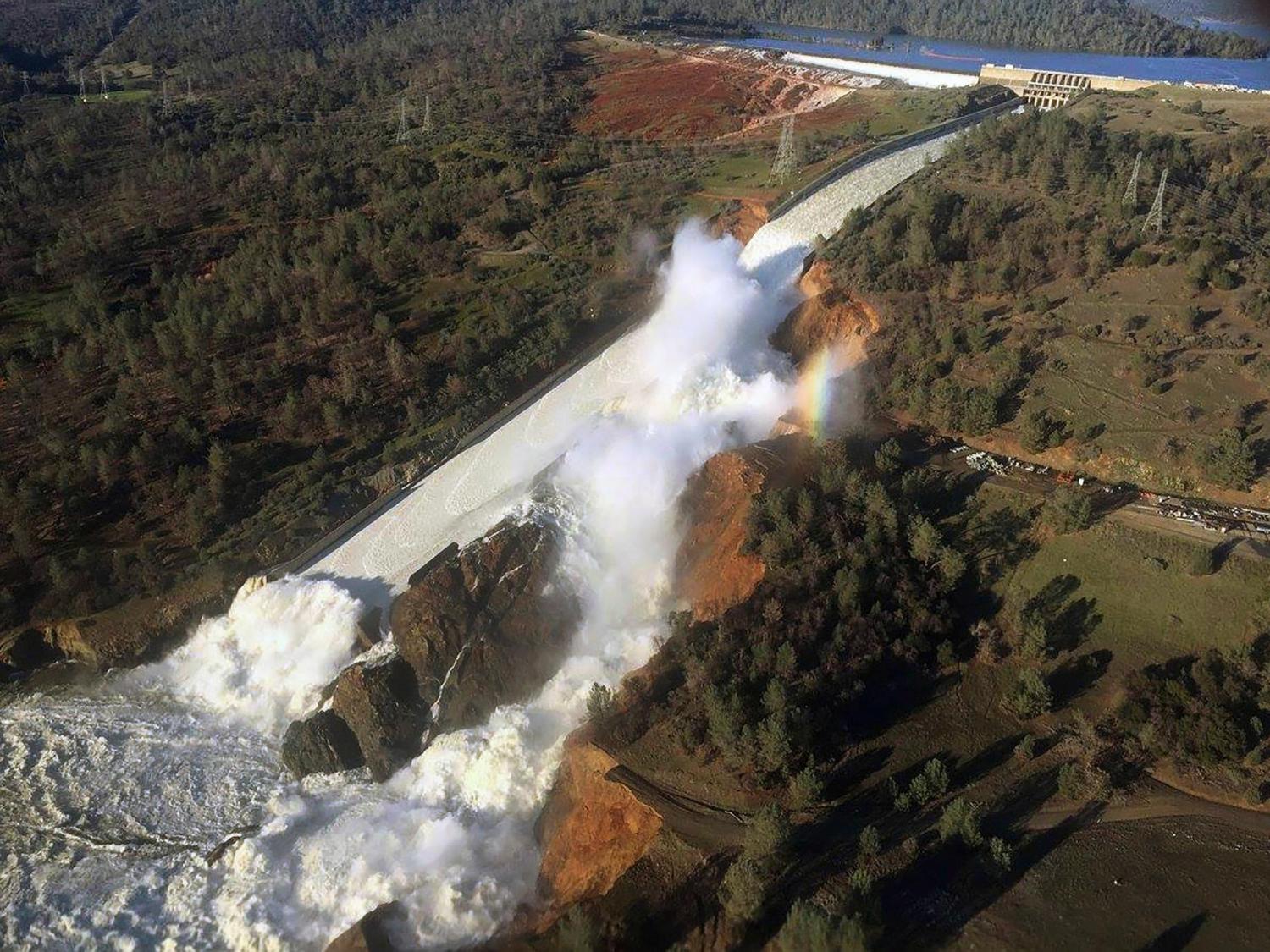Rain-on-snow flood risk to increase in many U.S. mountain regions
Risk could more than double in some areas of the West
Aug 6, 2018 - by Staff
Aug 6, 2018 - by Staff

View of Oroville Dam's main spillway (center) and emergency spillway (top), February 11, 2017. The large gully to the right of the main spillway was caused by water flowing through its damaged concrete surface. (Image: William Croyle, California Department of Water Resources.)
The following news release was issued by the University of Colorado Boulder about a study led by CU Boulder scientist Ketih Musselman and co-authored by NCAR scientists Flavio Lehner, Kyoko Ikeda, Martyn Clark, Andreas Prein, Changhai Liu, Mike Barlage, and Roy Rasmussen.
Flooding caused by rain falling on snowpack could more than double by the end of this century in some areas of the western U.S. and Canada due to climate change, according to new research from the University of Colorado Boulder and the National Center for Atmospheric Research (NCAR).
The greatest flood risk increases are projected for the Sierra Nevada, the Colorado River headwaters and the Canadian Rocky Mountains – places where residents are no strangers to flood concerns. Conversely, lower elevations in coastal regions of California, Oregon, Washington and maritime British Columbia could see decreases in rain-on-snow flood risk.
The findings were published today in the journal Nature Climate Change.
Rain-on-snow events vary widely in timing and scale but can cause costly and damaging flooding as rapid snowmelt triggered by heavy and prolonged rainfall converge in a cascade that can overwhelm downstream rivers and reservoirs. In 2017, California’s Oroville Dam nearly failed catastrophically due to such an event, leading to the evacuation of 188,000 people and $1 billion in infrastructure damages.
“Rain-on-snow events can be intense and dangerous in mountainous areas, but they are still relatively poorly understood,” said Keith Musselman, lead author of the study and a research associate at CU Boulder’s Institute of Arctic and Alpine Research (INSTAAR). “We can infer a little bit from streamflow, but we want to get better measurements and model more of the variables involved.”
Read the full news release at CU Boulder.